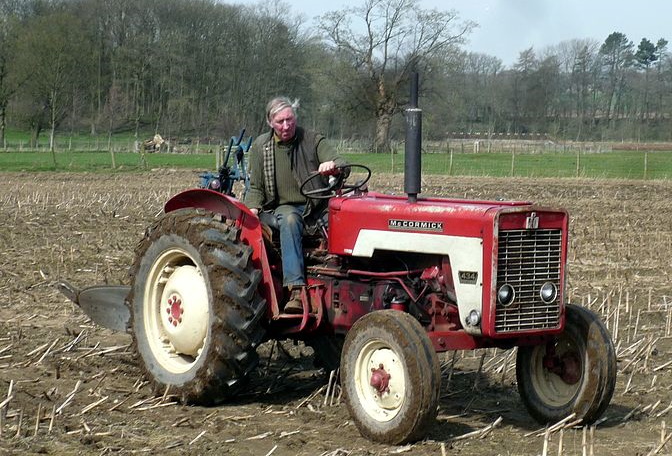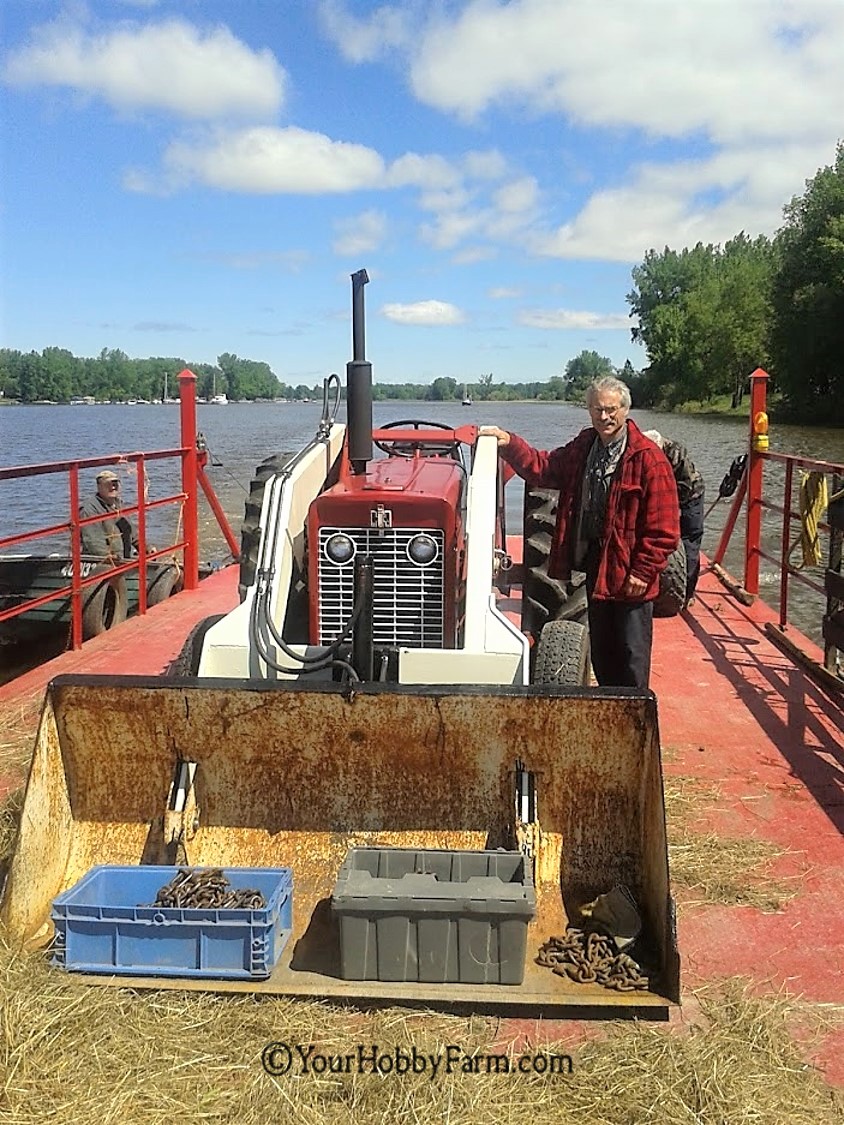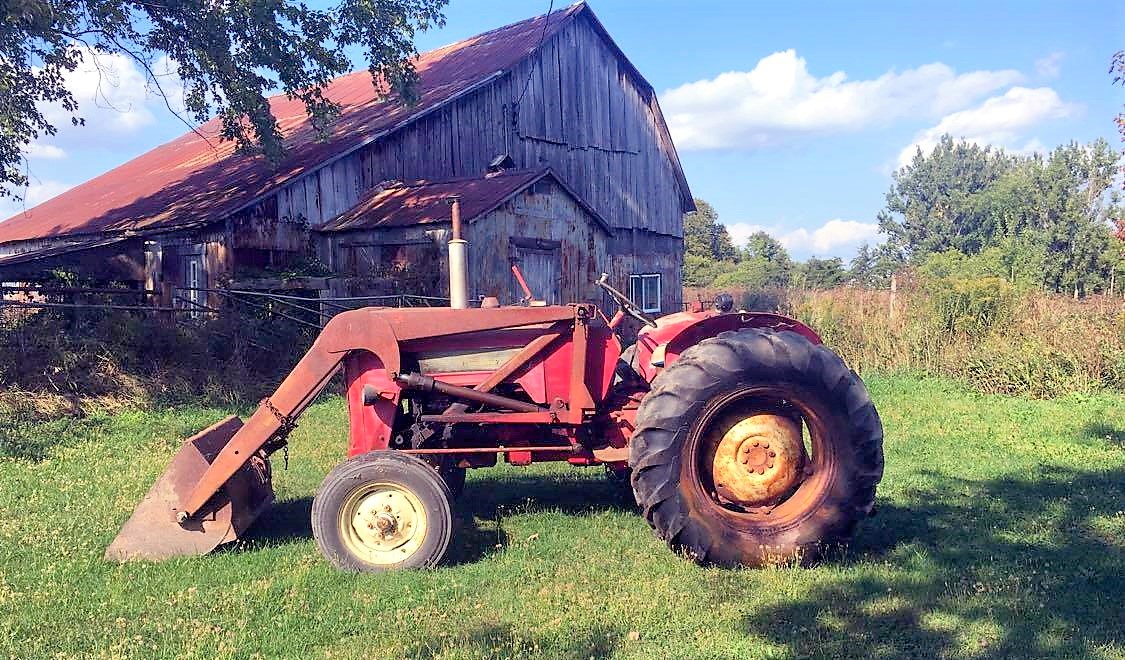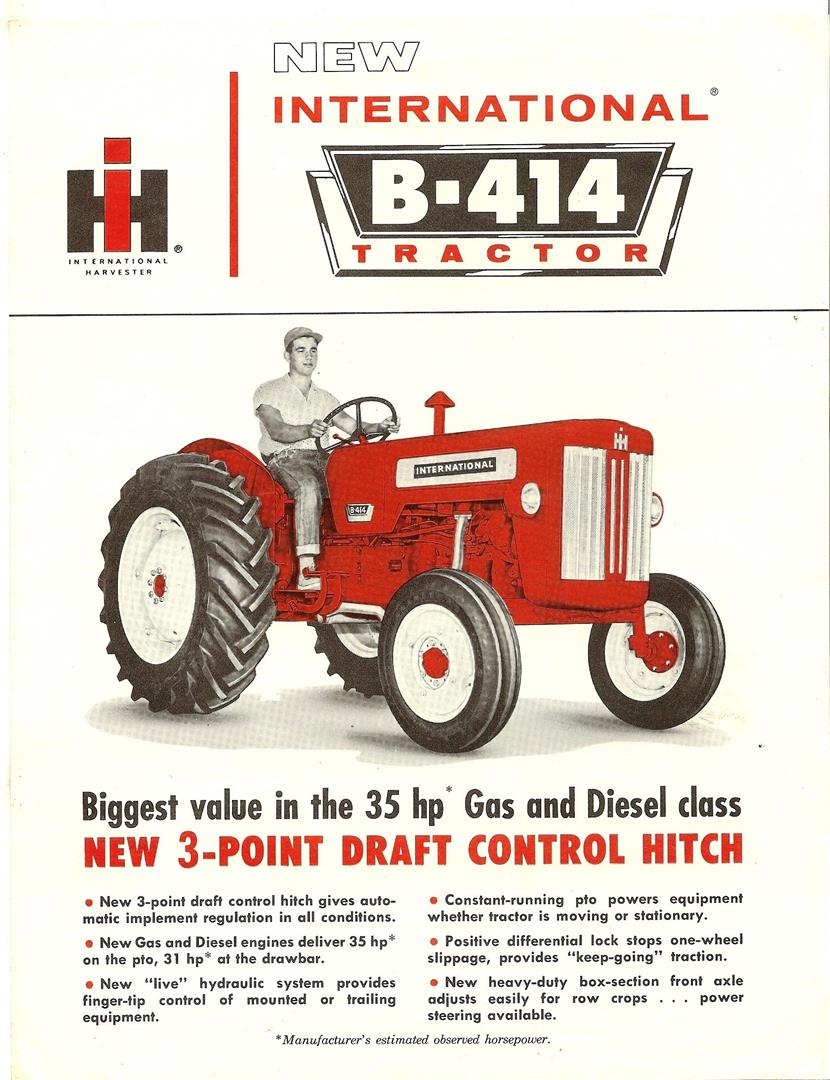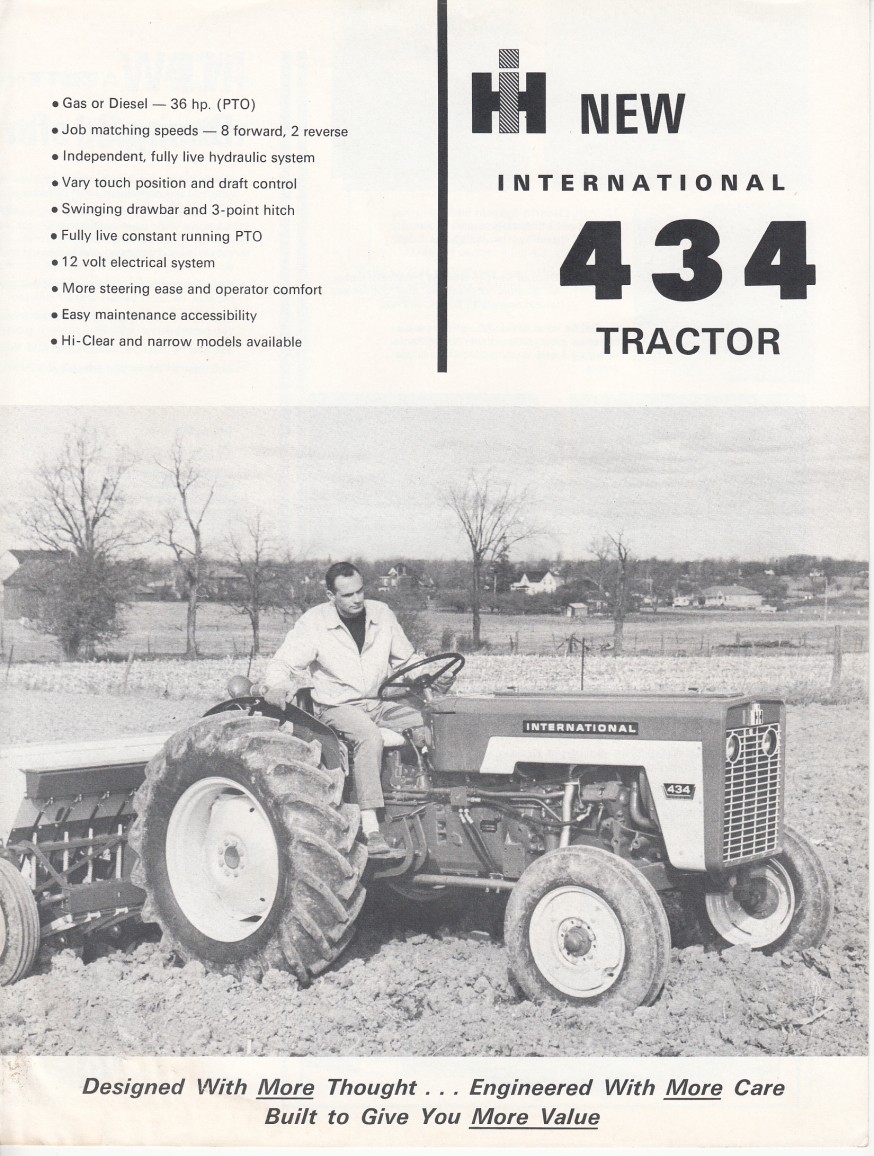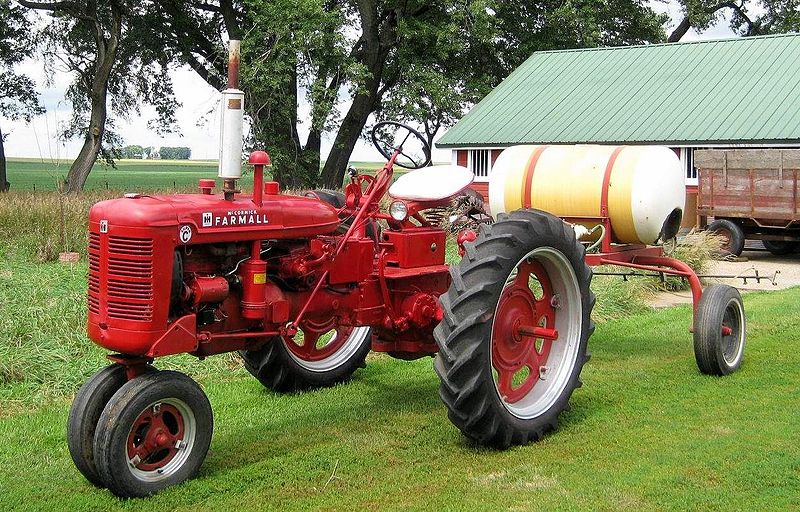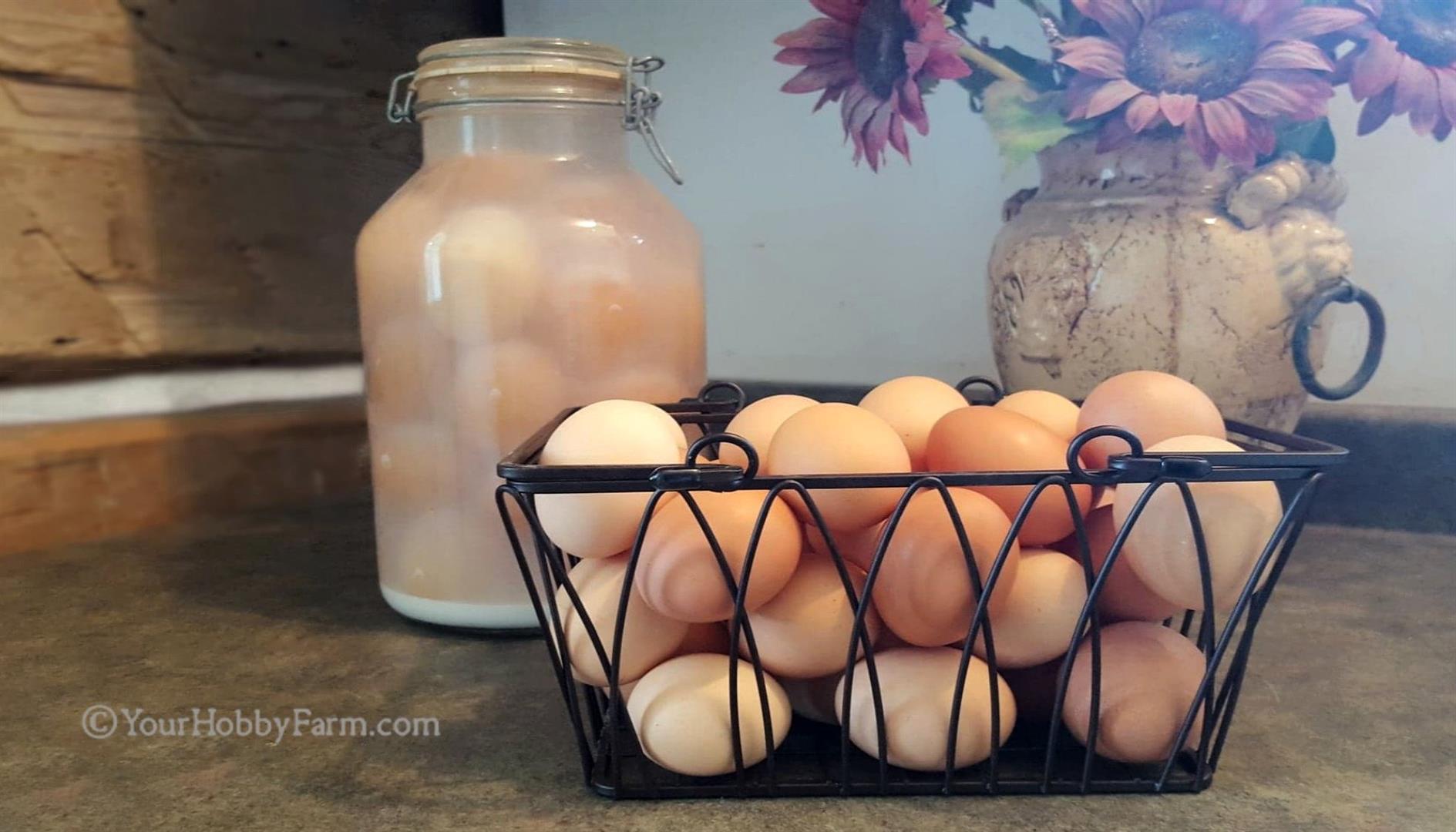International Tractors: British-Built Classics
Hey friends and followers! We're changing our website address from YourHobbyFarm.com to HomesteadJoys.com.
With ongoing homestead responsibilities, this transition may take some time. Save our New Logo and QR code for easy navigation! We’d love you to join us in our journey!
 Homestead Joys Logo
Homestead Joys LogoThe Farmer here at our hobby farm appreciates his International tractor. He would tell you that the older British-made International tractors are among his favorites. They are great tractors and proven, reliable workhorses, an asset to any hobby farm.
While International Tractors were made in several different countries around the world, each with unique differences and some similarities, these older British-made tractors, models B-250, B-275, B-276, B-414, the 434, 354, 384, 364 and the 444 are the ones that this Farmer has focused on. Many of these have interchangeable parts.
These International tractors have been around now for over 70 years. England produced all of these models mentioned above, however the 444, was also made in Louisville, Kentucky, United States. It's important to note that the British 444 and the American 444 are not the same and not all of their parts are interchangeable.
 IH Logo Source: Imagesia
IH Logo Source: ImagesiaThese classic farm tractors are still running strong and are found around the world. Many of these British-built International tractors were exported to some of the European countries, New Zealand, Canada, and elsewhere. There are still many found in the Eastern Canadian Provinces on hobby farms, orchards, and country places. These tractors are able to accomplish tasks that the larger tractors would be too big for.
Today there are those who are still buying these older used tractors here in North America. And there are others who buy and ship them to the farmers in their homelands overseas where they are making a big difference in people's lives.
If you're interested, the Tractor Data website provides a full list of all the International Farm tractors' models, horse power, manufacturing dates and where they were made.
International Tractor Similarities and Differences
The Farmer weighs in with this:
"The main difference between the British-made models is basically the external look of the tractor, for example, the tin-work and the instrument panels...
"Also, all these models (the B-250, B-275, B-276, B-414, the 434, 354, 384, 364 and the 444) have 4-cylinder engines, which are either a BC-144 gas, BD-144 diesel, and a BD-154 diesel. Identification for the engine type is found on the right side of the engine below the hydraulic pump on a small, flat surface that protrudes a bit out of the block. Except for the B-250, they all have 4-speed transmissions with high and low gears. These various models were so similar that the parts in many of these can be interchanged."
Loaders Used by the British International Tractors
These British International tractors were made to use a couple different types of loaders. One loader that was made available for these tractors is the 1501 loader. The early versions of this loader had trip buckets.
We'd like to thank Henri Mayer of Eastern Ontario, Canada, for sharing with us this photo of his B-275 International tractor. This photo gives a good example of the early version of the 1501 loader equipped with a trip bucket. The term 'trip' refers to the fact that you need to trip a lever to dump the bucket. This type of bucket doesn't use hydraulics to dump the load. Instead, you need to pull a lever that pulls a cable that unlatches the bucket and the load drops all at once. You then need to put the bucket all the way down to latch it in position to fill the next bucket load.
Later on, they redesigned the loader, eliminating the trip system and installing a center hydraulic cylinder. This gave the loader two-way action on the bucket, allowing it to tip up and down hydraulically, giving the driver more control and better use of the bucket.
The other loader that was available for these tractors was the 1550 loader. It had the center cylinder to activate the bucket with double acting side hydraulic cylinders. The advantage of this is that with the double acting side cylinders you have down pressure that allows you to lift the front end of the tractor off of the ground with the bucket.
A Complicated International Tractor History
In the twenty years that followed the Second World War, the British tractor industry began to thrive. Soon they became the world leader in innovation and production.
By 1952, British farmers were turning to diesel, and the International Harvester company was able to offer its version of diesel-powered tractors at the same time as many others in the market.
In 1953, the engine was also uprated, improving the power output of the tractor engine, which gave the new four-cylinder diesel engine tremendous lugging power.
We also understand that the 434 and the 444 diesel utility tractors were made in Geelong, Australia as well. They were essentially Australian versions of the British 434 and 444 utility models.
A Bit More Clarification...
There can be some confusion about the International Tractors because some of these models were built in England and sold both in the UK and in Canada, and some were made in the United States.
Apparently, there was also a joint development between Komatsu Japan and the International Harvester Company of Germany. And it seems that Turkey built some International Harvester tractors as well.
In North America we mostly have the American and the British International tractor models.
The British-built are more in Canada, and we have some American built International tractors up here as well. But they are different and their parts are often not interchangeable. This makes it important to know where your tractor was made, especially if you need parts.
Also, there are a few different names connected with the International Harvester farm tractor. Briefly, the Deering Harvester Company was founded in 1874 by William Deering. In 1902, Deering Harvester Company and McCormick Harvesting Machine Company, along with three smaller agricultural equipment firms merged to create the International Harvester Company. This company produced a few early models of their tractors. Then, with the launching of the Farmall, in 1924, a revolution in tractor design sprang to life. The Farmall name was usually presented as McCormick-Deering Farmall, and later McCormick Farmall in the evolving company brand of International Harvester, or "IH".
The Farmall introduced the tricycle style row-crop tractor. It was not equipped with a 3-point hitch, so the array of implements that could be used in conjunction with it were more limited than those tractors equipped with a 3-point hitch system. Nor did the earliest models of Farmall come equipped with a power take off necessary for powering implements with moving parts. But the Farmall was, and still is, great little tractor for plowing as well as having the capability of precision work such as cultivating.
Then in 1985 the International Harvester's agricultural operations were merged with the J. I. Case Company. Equipment is still manufactured under the Case IH name with factory locations around the world.
Here's a link for more interesting details of the history: Records of International Harvester Company of Great Britain LTD.
A Great International Harvest Tractor Shop Manual
Every tractor owner needs to keep his tractor tuned up and running. We'd highly recommend the International Harvester Shop Service Manual that covers 21 Popular International Harvester Tractor Models. This is an extremely valuable resource for any International tractor owner.
Click the pic and purchase your own copy of this great manual for your shop today and save repairman costs!
If you're working on your International tractor, this shop service will tell you how to take a tractor apart, how to repair it and how to put it back together again.
This repair manual covers the different older International Harvester models and deals with repairs in the language of a mechanic. The format is user-friendly. You'll find valuable information as to specifications, torques, etc., illustrated by photos and close-up views. If you are involved in any repairs or restoration, you will find this shop service manual extremely helpful, offering many short cuts that will save you time, money, and headaches.
* Footnotes:
1 A farmer in England still using his McCormick International 434 today. Photo by Michael Spiller, Wikimedia Commons, license: CC BY-SA 2.0
2 1954 International Harvester Farmall Super C, photo by Caster23, Wikimedia Commons, license: CC BY-SA 3.0
We Would Love to Hear From You!
Share Your Tractor Stories and Photos With Us
YourHobbyFarm.com is a community. This is where you can share your tractor stories, experiences, things you've learned along the way, photos, tips and tricks, or other information that may be helpful to others!
Just click into the title box below and go from there. Be as wordy and descriptive as you want! Don't be shy because we can all learn from one another's knowledge, experience, and helpful tips. There's plenty of room for your story on our website. We want to see your tractors, so don't forget to share photos! Then when published, you can share your story and pictures with your friends through 'your page' here on YourHobbyFarm.com!
Translate This Page!
Traduire Cette Page!
¡Traduzca Esta Pagina!



Piping Rock©
Bringing you the highest quality In hundreds of health care and life-enhancing natural products at the
lowest cost to you!
high reviews, crazy deals,
happy, healthy customers!
Click here and save today!
Business Appreciation
* This website is not affiliated with
Piping Rock

Supporting our local feed mills
Meunerie Alexandria Milling
613-525-1973
Great Products • Great Prices
Great Service
Click the pic for their
facebook page!
Meunerie Alexandria Milling
Established in 1962 by The Massie Family
Email: Alexandriamilling@hotmail.Ca
475 Massie Crescent
Alexandria, Ontario, Canada
~~~
Small Business Appreciation
* This website is not affiliated with
Meunerie Alexandria Milling

